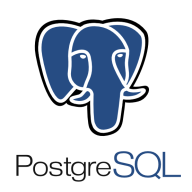

PostgreSQL and MySQL compete in the open-source database management system category. PostgreSQL appears to have the upper hand due to its advanced feature set and strong performance under high workloads.
Features: PostgreSQL offers comprehensive SQL compliance, advanced data types like JSONB, and support for complex queries and operations. It is recognized for superior scalability and extensibility. On the other hand, MySQL focuses on speed and compatibility, making it well-suited for small to medium-sized applications. It supports multi-threaded architecture, LAMP/WAMP integration, and provides excellent performance and stability in various environments.
Room for Improvement: PostgreSQL could benefit from improved documentation and support, as well as enhancements in multi-master replication and partitioning features. MySQL, while easy to use, faces challenges with scalability and lacks advanced analytical capabilities compared to enterprise solutions. It also needs to enhance support for complex data operations.
Ease of Deployment and Customer Service: Both PostgreSQL and MySQL are widely deployed across on-premises and cloud environments. PostgreSQL boasts a strong open-source community that offers extensive support, whereas MySQL, also backed by community forums, is noted for its ease of deployment. However, both lack centralized official support and primarily rely on community or third-party assistance.
Pricing and ROI: Both PostgreSQL and MySQL are open-source, minimizing software costs. PostgreSQL's rich features offer significant ROI for enterprises requiring advanced database functionalities, despite potentially higher personnel costs. MySQL, distributed under GPL, provides rapid ROI with lower overhead, appealing particularly to budget-constrained projects needing simple database solutions.
| Product | Market Share (%) |
|---|---|
| MySQL | 9.7% |
| PostgreSQL | 14.3% |
| Other | 76.0% |

| Company Size | Count |
|---|---|
| Small Business | 75 |
| Midsize Enterprise | 32 |
| Large Enterprise | 62 |
| Company Size | Count |
|---|---|
| Small Business | 57 |
| Midsize Enterprise | 26 |
| Large Enterprise | 46 |
MySQL is an open-source database known for its ease of use and high performance. It offers features like replication and clustering, making it ideal for diverse applications. Its cost-effectiveness and LAMP integration are key advantages for businesses.
MySQL supports a variety of languages and platforms, providing reliable, scalable data management. Its graphical interface and LAMP architecture integration enhance its usability, while community support further strengthens its appeal. Challenges include scalability issues with large databases, lack of advanced clustering, and limited high-availability features. Complex queries may affect performance, and integration can pose difficulties. The outdated interface and insufficient documentation are also concerns, along with replication and backup reliability issues.
What are MySQL's key features?MySQL is widely implemented in industries such as web development, e-commerce, and finance. It's used for managing dynamic websites, powering e-commerce platforms, and supporting financial applications. Its compatibility with PHP and cost-effectiveness make it suitable for CMS platforms like WordPress. With cloud services integration, MySQL is a backend choice for scalable applications in various sectors.
PostgreSQL is a versatile and reliable database management system commonly used for web development, data analysis, and building scalable databases.
It offers advanced features like indexing, replication, and transaction management. Users appreciate its flexibility, performance, and ability to handle large amounts of data efficiently. Its robustness, scalability, and support for complex queries make it highly valuable.
Additionally, PostgreSQL's extensibility, flexibility, community support, and frequent updates contribute to its ongoing improvement and stability.
We monitor all Open Source Databases reviews to prevent fraudulent reviews and keep review quality high. We do not post reviews by company employees or direct competitors. We validate each review for authenticity via cross-reference with LinkedIn, and personal follow-up with the reviewer when necessary.